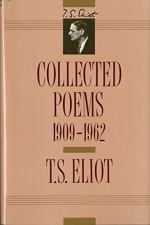|
This section contains 278 words (approx. 1 page at 400 words per page) |

|
Able to see despite his sightlessness and whispering from a “headpiece filled with straw” (4), the speaker of “The Hollow Men” is neither a literal, corporeal person nor a mere effigy of one. But readers are not led to think the poem is occurring in our human world: Eliot’s references to Dante’s Limbo imply instead that the poem unfolds in the afterlife, specifically in a realm that is neither Heaven nor Hell, one reserved for those who were neither good nor bad in life. So even though the speaker tells readers nothing about his past, they know something about it: he was not one of the “lost / Violent souls” (15-16) while he was alive, but neither did he act virtuously enough to gain passage to Heaven.
Eliot critiques the class of hollow men by showing the attitudes that contributed to their fate. The narrator...
|
This section contains 278 words (approx. 1 page at 400 words per page) |

|




